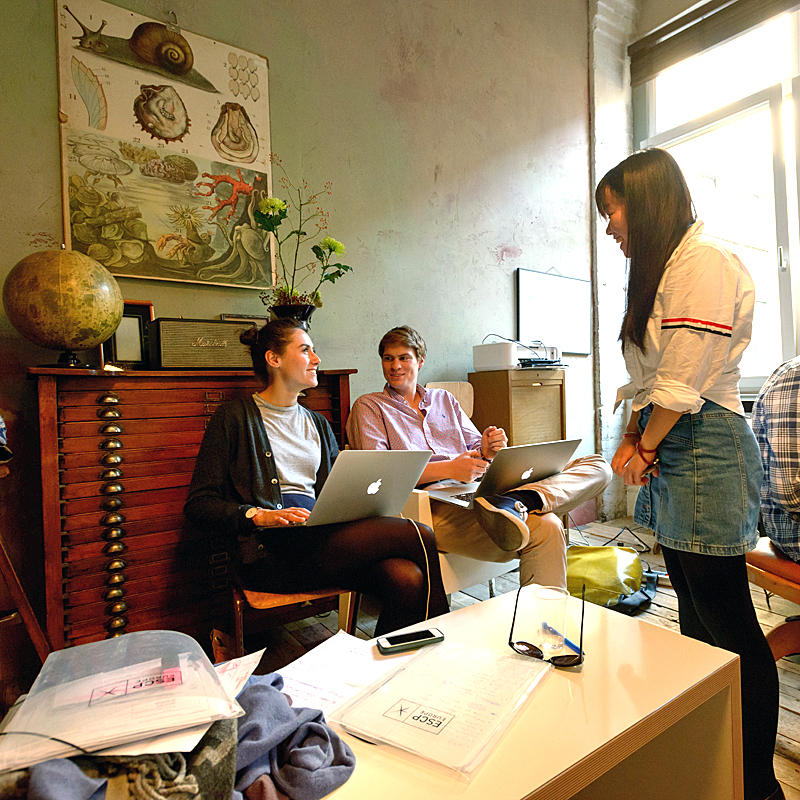Classified and recommended for imitation: Sustainable business models
Guest contribution | Dr. Florian Lüdeke-Freund | ESCP Europe Berlin
(Download the E-Paper: The sustainable business model pattern taxonomy – 45 patterns to support sustainability-oriented business model innovation, by Dr. Florian Lüdeke-Freund)

16.05.2018 | There are many business models. Exactly how sustainable business models work, however, has only been examined by isolated studies.
A team of international business model experts has now developed eleven sample groups for sustainable organizations at the ESCP Europe Berlin.
If you want to sustainably align your own company, you can orientate yourself and successfully imitate it.
A taxonomy of sustainable business models
Innovative business models have a good reputation: They are regarded as promising starting points for sustainable business startups and thus as an important factor for fundamental sustainable development in business and society. But while there are a lot of studies, guides, and manuals available for the conventional economy, there are only a few studies on ecologically or socially-driven business models.
A team of 15 international experts from science and those with practical experience has therefore developed a taxonomy of sustainable business models. During a three-year process, more than 100 business models as well as related literature were evaluated in the context of sustainability. The result is a classification of 45 business models into eleven sample groups, which can serve as a guideline for both science and industry.

The following business model sample groups are included:
- Sales and pricing models
- Financing models
- Ecodesign models
- Models for the Circular Economy
- Supply chain models
- Donation models
- Models for expanded market access
- Social models
- Service models
- Cooperation and association models
- Community models
These are also assigned to six expected sustainability contributions: ecological, social, or economic effectiveness, as well as ecological or social efficiency and integrative effect.
Practical examples from business
The 45 business models described include company examples that operate at varying prices in developing countries and the Western world, granting microcredits, or designing their products to be reusable, repairable, or recyclable. There are companies that pay attention to adherence and improve environmental and social standards along their supply chains and those who pursue social goals such as providing equal opportunity and education.
Sustainably oriented service is also a big topic. Keywords here are lifecycle extension or product-oriented services. Sharing economy and association models were also identified. The 45 business model samples and the respective sample companies, which are detailed in the appendix of the study, can thus be read as a best practice.
We assume that the identified business model samples are transferable. For every company that wants to create value creates ecological, social, and/or economic problems. For these there are solutions that can also be used in other contexts, situations, or fields.
Estimating trends and developments using the Delphi method
The taxonomy was developed using what’s known as the Delphi method, which is an established procedure in which experts are asked for an assessment. In addition, the experts we surveyed formed a consensus on the structures, issues, and results so that they are also scientifically sound.
The adjusted Delphi method is a by-product applicable to other studies.
In the future, the eleven model groups of sustainable business models will serve scientists and practitioners of various disciplines and industries to study and develop existing models for their effectiveness. At the same time, the taxonomy can also be used by founders to develop new business ideas and to sharpen their own demands on a sustainably operating company.

Only if there is knowledge of useful resources for designing sustainable enterprises will the relationship between business and society and the development of sustainable enterprises improve.
Therefore, our team also evaluated the potential for sustainable value creation in the individual sample groups. Individual scores were assigned to each business model using a rating system. These in turn were converted into distance values and transferred to the “sustainability triangle"¹ according to Stefan Schaltegger and Roger Burritt. In this model, the three aspects of sustainability – ecology, economics, and social issues – form a triangle. The special feature of the model variant according to Schaltegger and Burritt is that a distinction is made between efficient and effective sustainability contributions. The distance values thus indicate at which distance, for example, companies oriented toward eco-design stand for socially efficient or economically effective contributions.
The differentiated knowledge of sustainable business models benefits in many ways:
- It is possible to understand which models are suitable under different conditions (for example, in the light of environmental or social requirements).
- Findings can be more easily shared among sustainability players and transferred to conventional companies.
- Business leaders and founders are inspired to mimic and develop successful business models.
- Hypotheses regarding the impact of sustainability can be formulated and tested.
- One can learn from the experiences of the pioneers.
Even today, the 45 business models that formed the basis of the sample groups can be used for one's own company using an online tool. For example, at www.smartbusinessmodeler.com, founders can combine samples in an online course to develop their own business model.
¹ Schaltegger, S. & Burritt, R. 2005. Corporate sustainability. In H. Folmer & T. Tietenberg (Hrg.): International yearbook of environmental and resource economics 2005/2006, Cheltenham, UK: Edward Elgar, 185-222
Guest contribution by Dr. Florian Lüdeke-Freund
ESCP Europe Berlin | Corporate Sustainability
With a PhD in Economics and the Social Sciences, Florian Lüdeke-Freund specializes in research into sustainable business models. Among other things, he initiated the research platform www.SustainableBusinessModel.org, which focuses on central issues of sustainable business management. Lüdeke-Freund has been setting up the Chair of Corporate Sustainability at ESCP Europe Berlin since 2017 and is also the academic director of the new "Entrepreneurship and Sustainable Innovation" master's degree program.
ESCP Europe is the world's oldest business school (founded in 1819). With its locations in Berlin, London, Madrid, Paris, Turin, and Warsaw, it promotes European thought. The university is state recognized.
